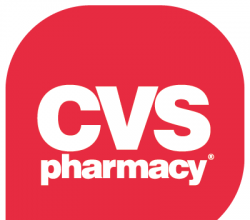At this writing, I am in Atlanta visiting our daughter at Emory University. This may be the only college campus in the nation where you can’t buy Pepsi. Coke is King here.
At this writing, I am in Atlanta visiting our daughter at Emory University. This may be the only college campus in the nation where you can’t buy Pepsi. Coke is King here. If you don’t know this, do some due diligence before you or someone you love interviews here.
I remember a few decades interviewing at the medical school here. There are only 2 medical school interviews that I recall after all these years. At N.Y.U. School of Medicine, the canny interviewer asked me what the death rate of Americans is. I correctly responded, “100%”. I suppose that untangling enigmatic questions was an N.Y.U. admission requirement, since they did accept me, and I did attend. The other medical school interview I still recall was at Emory, although it’s not the questions I remember. Their unique interview format made the experience memorable. Three medical school applicants were interviewed simultaneously as we faced a bank of questioners. This was reminiscent of the ancient and popular TV show, The Dating Game, where 3 bachelors or bachelorettes heard their competitors’ responses and often had to respond to the same questions.
Emory University still has a strong pre-med focus in their undergraduate community, as do many other colleges. Do these idealistic kids have a clue about what post-med life will be like on the other side of the wall? Have they been reading newspapers (or iPads) about the convulsions the medical profession is experiencing, or have they been immersed in memorizing arcane facts about anatomy and pharmacology? Will they find medicine to be a satisfying career? What are their expectations?
In many ways, it will be easier for these new physicians than it has been for their ossified, older colleagues. You can’t miss what you never had. Their reality will be that they will be controlled by the government and insurance companies, if the latter still exist. They won’t be frustrated over loss of autonomy that they never had. They will regard absurd medical quality programs, such as pay-for-performance, to be necessary and integral components of quality medical care. They will routinely submit patient outcome data to payers who will link these outcomes to their reimbursement. These new doctors, who didn’t witness the evolution of these accountability initiatives, won’t recognize the gaping flaws and hidden agendas in these programs. They will likely be employed, and won’t harbor resentment and regrets of having been forced to leave private practice. There won’t be medical guidelines to consult designed by academics, but there will be medical mandates that will require compliance. Those who dare to deviate will have to submit volumes of documentation to justify thinking outside the mandate.
They will enter a profession very different from the one we did. They will be conscientious practitioners, but they won’t have the unbridled dedication to the profession that defined physicians for generations. They will value their lifestyles and their leisure time with friends and families. They will have more of a shift work mentality, which is natural for employees who don’t feel ownership of the operation. Increasingly, medicine will be practiced remotely from the patient, with telemedicine and robotics.
Of course, many of these changes will offer amazing medical benefits to patients. But, there will be a cost. Many of these advances will change what has been the core element of medical care – the doctor-patient relationship. This new paradigm is a difficult concept for many of us to accept, but it may not translate into inferior care. In many cases, medicine will be practiced without putting a reassuring hand or stethoscope onto the patient. Relationships will become more clinical and less personal, particularly as medical advice is offered from physicians in remote locations, who may not have met the patient. A skin rash in Cleveland may be evaluated by a dermatologist in New York City. An abdominal tumor in Topeka might be removed surgically by remote control by a surgeon in Chicago.
I think that physicians of the next generation can still find great fulfillment and reward in their work. Their satisfaction, however, will have to be linked to their expectations, which are quite different from those of their predecessors. There is another side of the equation that I have bypassed here, but is worthy of comment. The expectations of the public – our patients – will have to change also. The new rules of the game will challenge healers and those who come seeking their assistance. Will patients who have yesterday’s expectations be satisfied with tomorrow’s doctors?





